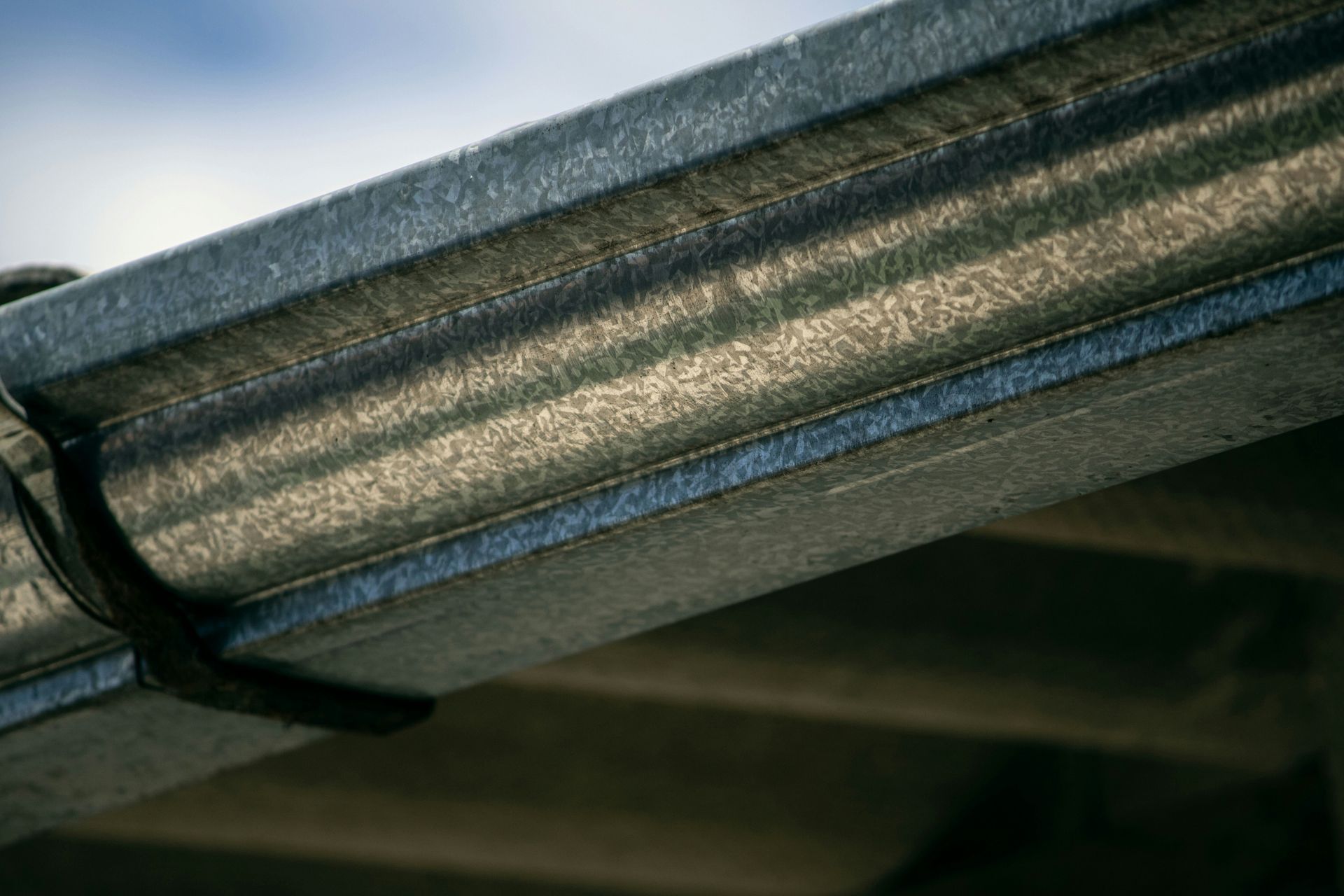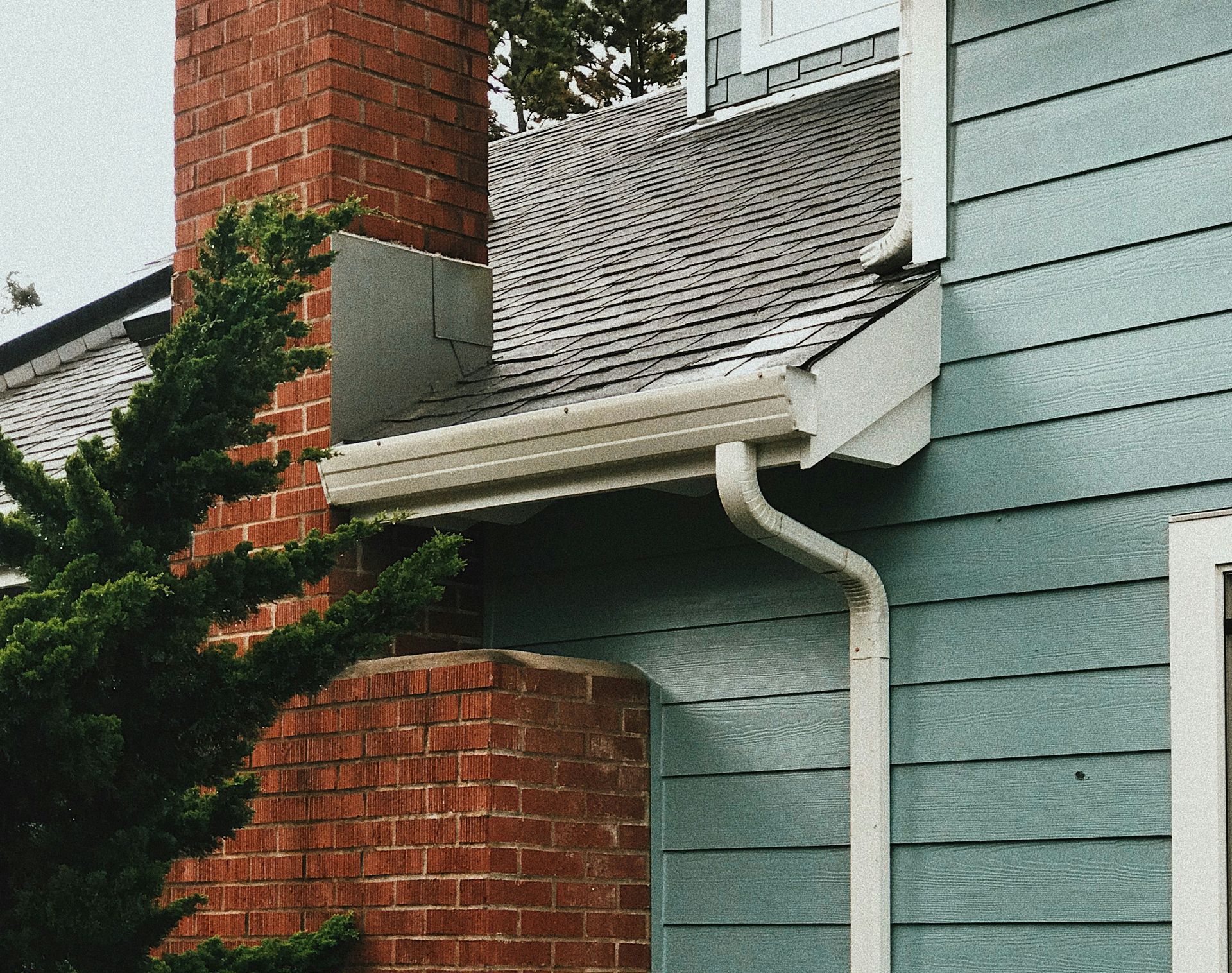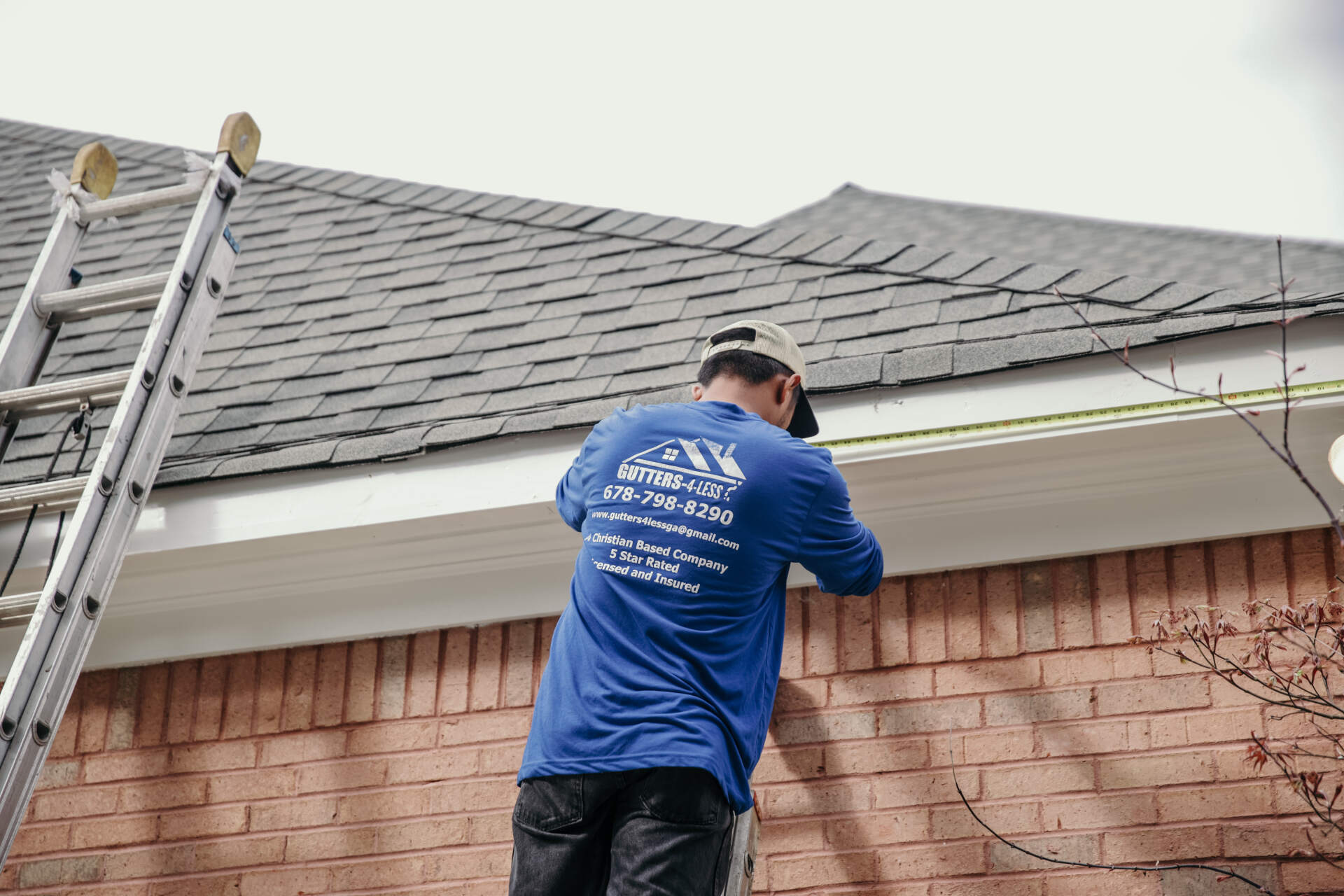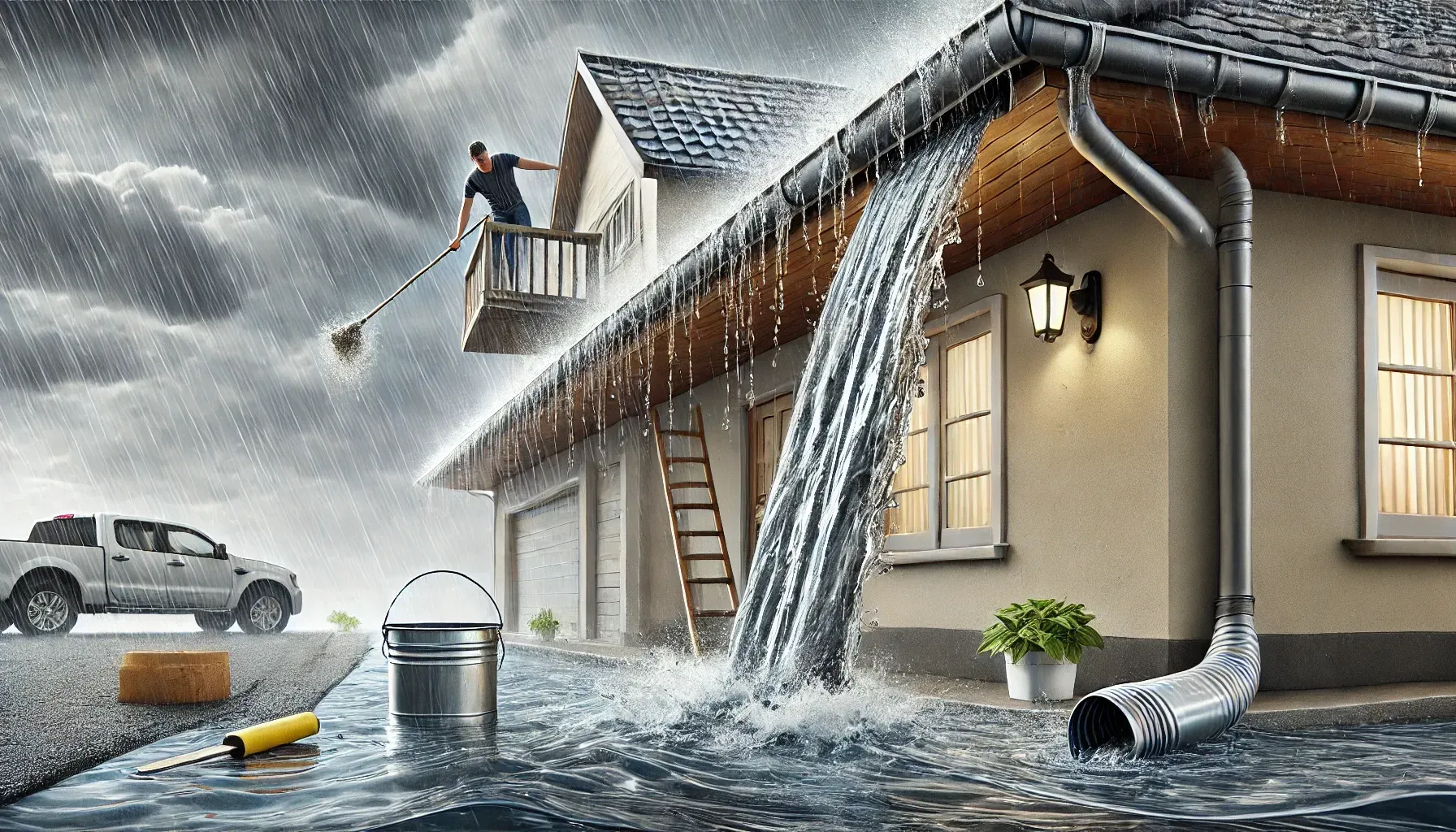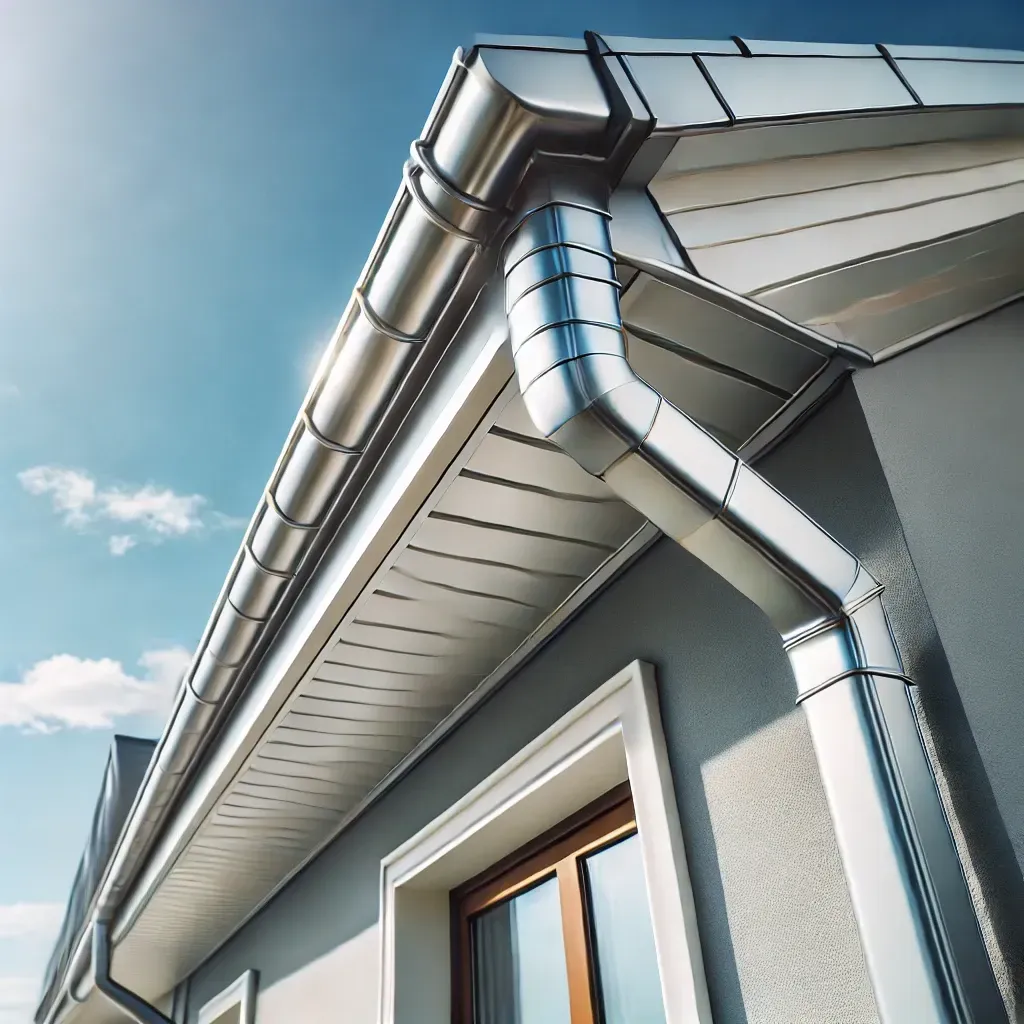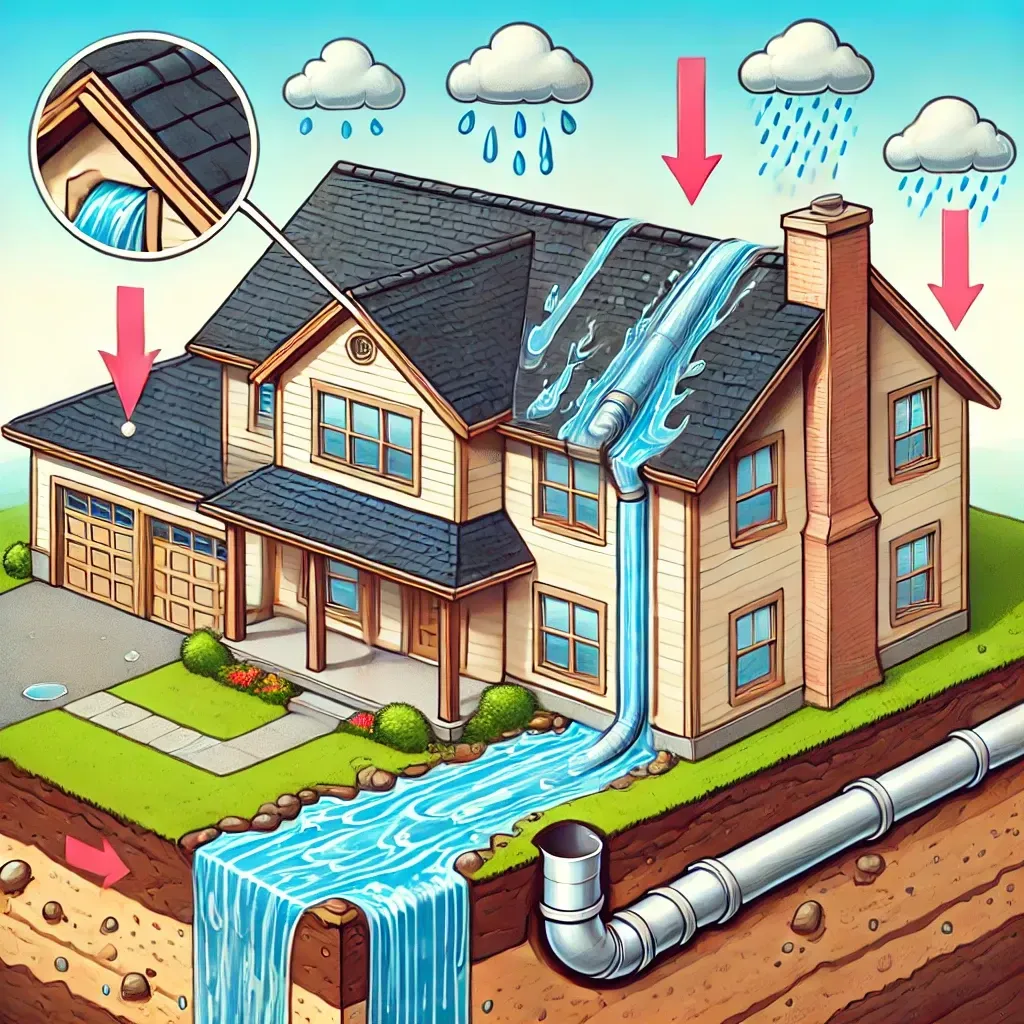What Are Gutters Made Of? A Complete Guide to Gutter Materials
When you’re looking to install or replace gutters, one of the first questions that might pop up is, “What are gutters made of?” Rain gutters are crucial in directing water away from roofs to prevent erosion and water damage. Different materials suit different needs, from budget to durability to appearance.
This article will discuss the most common gutter materials, helping you make the best decision for your home.
Key Takeaways
- Aluminum gutters are popular for being lightweight, rust-resistant, and affordable but may dent easily and struggle in heavy snow or ice.
- Vinyl gutters are budget-friendly and easy to install but can become brittle in cold temperatures and may warp under extreme conditions.
- Copper and zinc gutters offer premium durability and aesthetic appeal, but they come at a higher cost and require professional installation.
Understanding Gutters and Their Importance
Gutters protect homes from water damage by directing rainwater away from the foundation. A well-functioning gutter system is essential for maintaining the integrity of a home’s structure and preventing costly repairs. Gutters are designed to collect and channel rainwater from the roof to the downspouts, directing the water away from the home. Without gutters, water can accumulate around the foundation, leading to erosion, basement flooding, and structural damage.
The Different Types of Gutter Materials
Gutters can be made from several materials, each with strengths and weaknesses. Let’s break down the most common options:
Aluminum Gutters: Lightweight & Rust-Resistant
Aluminum is one of the most popular choices for gutter systems in Georgia. It is lightweight and rust-resistant, ideal for areas with frequent rain. Aluminum gutters are versatile and come in various colors to match your home.
Seamless aluminum gutters are popular for residential properties due to their strength, lightweight nature, and customizable design. They can be formed to specific shapes and lengths to suit individual home needs and offer enhanced durability, especially in adverse weather conditions.
Pros
- Lightweight
- Rust-resistant
- Easy to install
- Affordable
Cons
- Prone to denting
- It might not withstand heavy snow or ice well
Vinyl Gutters: The Budget-Friendly Option
For homeowners on a budget, vinyl gutters are a great choice. These plastic gutters are affordable and easy to install. They won't rust or corrode, but they have their durability limitations, especially in extreme weather conditions.
Pros
- Cheap and easy to install
- No rust or corrosion
- Perfect for DIY installation
Cons
- Brittle in cold temperatures
- May crack or warp under extreme conditions
Steel Gutters: Strength That Lasts
Steel gutters, particularly galvanized steel, offer greater durability and strength than aluminum and vinyl. They are also less likely to be damaged by ladders or branches, making them a solid option for homes surrounded by trees. However, galvanized steel can rust over time, so it must be maintained regularly.
Pros
- Strong and durable
- Resistant to damage
- Ideal for heavy rainfall areas
Cons
- Prone to rust unless coated
- Heavier and more challenging to install
- Higher cost
Copper Gutters: The Premium Option
If you want to add a touch of elegance and style to your home, copper gutters are the way to go. These high-end gutters develop a patina over time, giving them a beautiful, classic appearance. Copper is durable and will last for decades, but it does come with a hefty price tag.
Pros
- Extremely durable and long-lasting
- Develops a beautiful patina over time
- Low maintenance
Cons
- Expensive
- Requires professional installation
Zinc Gutters: Eco-Friendly and Durable
Zinc gutters are another premium option known for their durability and eco-friendliness. With proper maintenance, zinc naturally resists corrosion and lasts 50 years or more. These gutters are often used in historic restoration or high-end home designs.
Pros
- Long lifespan (up to 50 years)
- Rust-resistant
- Minimal maintenance
Cons
- High cost
- Professional installation required
Wood Gutters: Traditional and Aesthetic
Although less common in modern homes, wood gutters can still be found on older or historic buildings. They offer a traditional look but require significant upkeep to prevent rotting and water damage. Cedar is the most commonly used wood for gutters.
Pros
- Aesthetic appeal, particularly for historic homes
- It can be custom-made to fit
Cons
- High maintenance (regular sealing and painting)
- Prone to rot and water damage
Gutter Construction and Installation
Gutter construction and installation require careful consideration to ensure a functional and effective gutter system. Gutters can be made from various materials, including aluminum, vinyl, copper, steel, and wood.
The choice of material depends on factors such as durability, maintenance, and cost. Seamless gutters are a popular option, as they are less prone to leaks and require less maintenance than sectional gutters. A professional should install a gutter to ensure proper sizing, placement, and attachment to the home.
Gutter Styles and Shapes
Gutters come in various styles and shapes to suit different homes and budgets. The most common gutters are K-style, Half-Round, and Box.
K-style gutters are the most popular, featuring a flat back and a unique shape on the front edge.
Half-round gutters are known for their efficiency in flushing out debris due to their rounded shape.
Box gutters are oversized gutters primarily used for commercial or industrial buildings.
The style and shape of the gutter should be chosen based on the home’s architecture, roof type, and personal preference.
Maintenance and Upkeep of Gutters
Regular maintenance and upkeep are essential to ensure the longevity and effectiveness of gutters. Gutters should be cleaned at least twice yearly to remove debris and leaves. Downspouts should be checked for blockages and cleaned as needed. Gutter guards can be installed to prevent debris from entering the gutters.
Additionally, gutters should be inspected for signs of damage, rust, or corrosion and repaired or replaced as needed. Proper maintenance can help prevent costly repairs and ensure the gutter system functions properly.
Which Gutter Material is Best for Your Home?
Choosing the right gutter material depends on several factors, including your budget, the weather conditions in your area, and the aesthetic of your home. Other gutter materials, such as pure copper and vinyl, have distinct advantages and disadvantages regarding longevity, maintenance, cost, and performance.
If you’re after something affordable and easy to install, vinyl or aluminum may be the best options. For those seeking long-lasting, premium options, copper or zinc will offer decades of durability, though at a higher cost.
Conclusion
Now that you know what gutters are made of and the pros and cons of each material, it's time to decide based on your home's needs. Whether you're looking for durability, aesthetic appeal, or something budget-friendly, there's a gutter material out there. Don't forget to consider your area's maintenance and weather conditions when choosing.
Do you need help choosing or installing new gutters?
Contact us today for expert advice and professional installation tailored to your home’s requirements.



